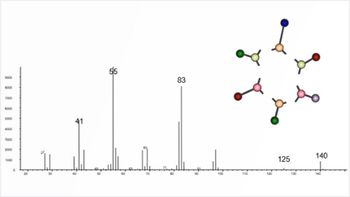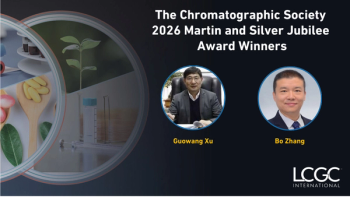
- May 2024
- Volume 20
- Issue 5
- Pages: 7
‘Professor of Beer’ Wins AOAC Lifetime Achievement Award
Michelle Colgrave of Edith Cowan University and Australia’s national science agency is the recipient of the 2024 Harvey W. Wiley Award.
Many have proclaimed themselves the “Professor of Beer,” but there is one scientist in Australia who can lay a legitimate and educational claim to the title.
Michelle Colgrave, a professor of food and agricultural proteomics in the School of Science at Edith Cowan University, in Joondalup, Australia, is colloquially known by that moniker, as her research specializes in the proteomics—or the study of proteins using mass spectrometry (MS)—of beer, and specifically the gluten contained within the barley used to make beer (1).
Given that the presence of gluten is a concern for those with celiac disease, Colgrave’s focus on gluten and other proteins that play a part in food allergy and intolerance is a major factor cited by the Association of Official Agricultural Chemists (AOAC) International, based in Rockville, Maryland, USA, in awarding Colgrave the 2024 Harvey W. Wiley Award, the organization’s highest honor for lifetime achievement in science (1).
In addition to her academic pursuits, Colgrave is also the Deputy Director (Impact) of Australia’s national science agency, the Commonwealth Scientific and Industrial Research Organization (CSIRO) Agriculture and Food, headquartered in the Queensland Bioscience Precinct in Brisbane (1). It was a paper she edited, “Proteomics in Food Science: From Farm to Fork,” published in 2017, that is credited with encouraging the introduction of proteomics and MS applications to the agricultural research and food science fields.
Announcing the award on April 4, Mary Kay Krogull, AOAC International president, said that Colgrave’s research has “led to safer food sources for millions of people worldwide.” Her work dovetails with recent efforts to identify volatile organic compound (VOC) composition in both alcoholic and non-alcoholic beers to recreate flavor profiles in non-alcoholic options for those who wish to abstain from alcohol for a number of reasons (2).
Likewise, even people who do not have celiac disease may opt for gluten-free beverages on occasion or with regularity. According to AOAC, Colgrave is interested in the bioactive proteins that provide certain health benefits in which such consumers may be interested. She has been recognized for “major breakthroughs” in gluten, “the proteinaceous elicitors of celiac disease” (1).
AOAC will present the Harvey W. Wiley Award to Michelle Colgrave at the 2024 AOAC Annual Meeting and Exposition, to be held in Baltimore, Maryland, from August 23–28. At that time, the organization said, the symposium at which Colgrave will be honored will be highlighted by her lecture on liquid chromatography coupled to mass spectrometry (LC–MS) analysis as it relates to novel proteins.
For more information on AOAC’s upcoming 138th annual meeting later this summer, visit the following link:
References
(1) AOAC International Announces Professor Michelle Colgrave as the 2024 Wiley Award Winner. AOAC International, April 4, 2024.
(2) Harper, M. C.; Kfoury, N.; Whitecavage, J. Volatile Organic Compound and Sensory Profiles of Alcoholic Versus Non-Alcoholic Beer Using Immersive TF-SPME and SBSE. Column 2024, 20 (1), 10–17.
Articles in this issue
over 1 year ago
Sustainability and Separation Science: An Updateover 1 year ago
ASMS Comes to Anaheim for 2024 Editionover 1 year ago
Vol 20 No 5 The Column May 2024 North America PDFNewsletter
Join the global community of analytical scientists who trust LCGC for insights on the latest techniques, trends, and expert solutions in chromatography.




